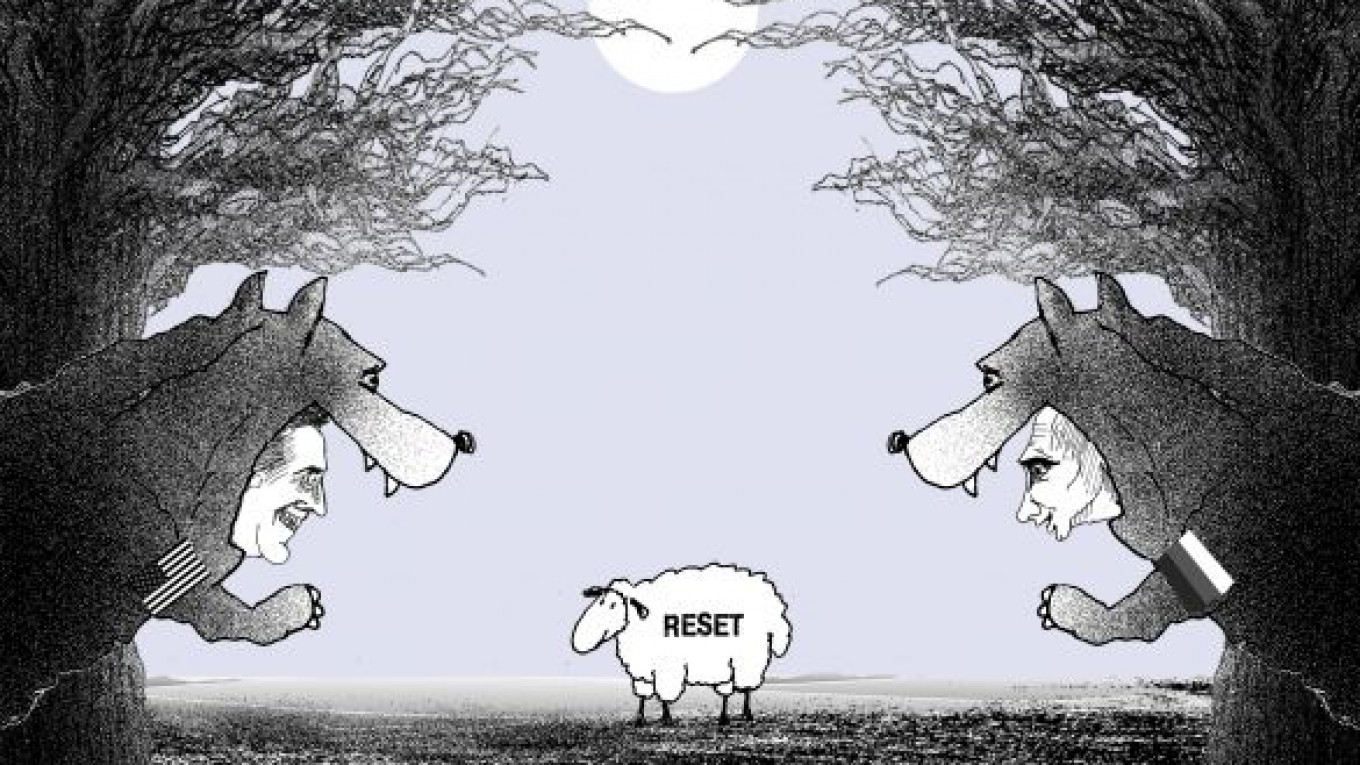On the surface, the 2012 outlook for the U.S.-Russian “reset” is looking bleak.
Although we are a year away from the U.S. presidential election, the chances that President Barack Obama, the architect and chief supporter of the reset, will be re-elected in 2012 do not look good — if for no other reason than U.S. unemployment is expected to stay at a historical high for the next 13 months.
No U.S. president since Franklin Delano Roosevelt during the Great Depression has been re-elected when unemployment has exceeded 8 percent. The unemployment rate currently is 9.2 percent, and many economists believe that it will remain around 9 percent until Election Day. The Congressional Budget Office predicted that if unemployment drops, it would, at best, reach 8.2 percent by November 2012. But even at this level, it would most likely be too high to save Obama’s re-election bid.
Meanwhile, Mitt Romney has become — at least for now — the Republican front-runner for the presidential race, which does not bode well for the reset. Last Friday, he told The Washington Post that the reset “has to end.”
Romney supports former U.S. President George W. Bush’s plans to deploy elements of a missile defense system in Poland and the Czech Republic, which seriously damaged U.S.-Russian relations for much of the period from 2002 to 2008. Obama was able to partially repair this damage in 2009 by scaling down Bush’s plans and deploying radar and interceptors farther away from Russia’s borders.
Romney also criticized Prime Minister Vladimir Putin on Friday, saying Putin wants to “rebuild the Russian empire. That includes annexing populations as they did in Georgia.”
This sounds disturbingly like what the neocons used to say about Russia during the Bush years.
Conservative political analyst Sergei Kurginyan coined the phrase, “Strike the iron while Obama is in office,” implying that Obama offers a much better opportunity for improved U.S.-Russian relations than an administration dominated by foreign policy neocons. Other analysts, such as television journalist Alexei Pushkov, have warned that the anti-Obama backlash among U.S. voters could pave the way for a neocon to be elected president in 2012. In terms of U.S. policy toward Russia, this could mean, among other things, a revival of Bush’s “Georgia project,” a withdrawal from New START, a more aggressive NATO expansion policy and increased U.S. activity in Ukraine and Central Asia.
Things do not look much better from the Russian side, however, particularly given Putin’s likely return to the presidency in 2012. In his next one — or two — terms, Putin will likely maintain his deep mistrust of Washington’s intentions toward Moscow and continue his trademark sharp criticisms of U.S. policies, which are popular among many Russians. This would hardly aid the reset.
In Putin’s first decade in power, we all remember, for example, when he claimed “outside forces” — hinting at the United States — were behind the September 2004 Beslan terrorist attack; or his 2007 Victory Day speech, when he likened U.S. foreign policy to the Third Reich; or his December 2010 interview with Larry King, when he said the United States should keep their noses out of Russia’s business. And as fresh reminders to Washington of where he stands, Putin called the United States “hooligans” in July and “parasites” in August. (On Tuesday in China, he softened his statement, saying, “America is being parasitic with the dollar’s monopoly position.”)
Meanwhile, Putin’s heavy play of the nationalist card will certainly not help U.S.-Russian relations. The Liberal Democratic Party, A Just Russia and even the Communists are now reaching out to nationalist-minded voters, and Dmitry Rogozin and his 100,000-member Rodina-Congress of Russian Communities last month pledged allegiance to Putin and United Russia.
It was Rogozin, by the way, who in July complained about conservative U.S. senators being “monsters of the Cold War.” To be fair, there are plenty of these Cold War “monsters” among political and military leaders on both sides, but the problem is that if both Russia and the United States elect one of them as president in 2012, there could be a real setback in Obama’s reset.
It would be easy to dismiss both Romney’s and Putin’s statements as election-year grandstanding that will have no real impact on the reset, whose roots lie in cooperation on Afghanistan and Iran and renewed trade ties, among other things. But at the same time, this type of demagoguery creates a combative and bitter atmosphere in bilateral relations and could instigate a self-perpetuating cycle of accusations and counteraccusations from both sides.
The reset works best when demagoguery is minimal. Let’s hope leaders from both sides will put their energy into cooperating rather than blustering after the 2012 elections.
A Message from The Moscow Times:
Dear readers,
We are facing unprecedented challenges. Russia's Prosecutor General's Office has designated The Moscow Times as an "undesirable" organization, criminalizing our work and putting our staff at risk of prosecution. This follows our earlier unjust labeling as a "foreign agent."
These actions are direct attempts to silence independent journalism in Russia. The authorities claim our work "discredits the decisions of the Russian leadership." We see things differently: we strive to provide accurate, unbiased reporting on Russia.
We, the journalists of The Moscow Times, refuse to be silenced. But to continue our work, we need your help.
Your support, no matter how small, makes a world of difference. If you can, please support us monthly starting from just $2. It's quick to set up, and every contribution makes a significant impact.
By supporting The Moscow Times, you're defending open, independent journalism in the face of repression. Thank you for standing with us.
Remind me later.






